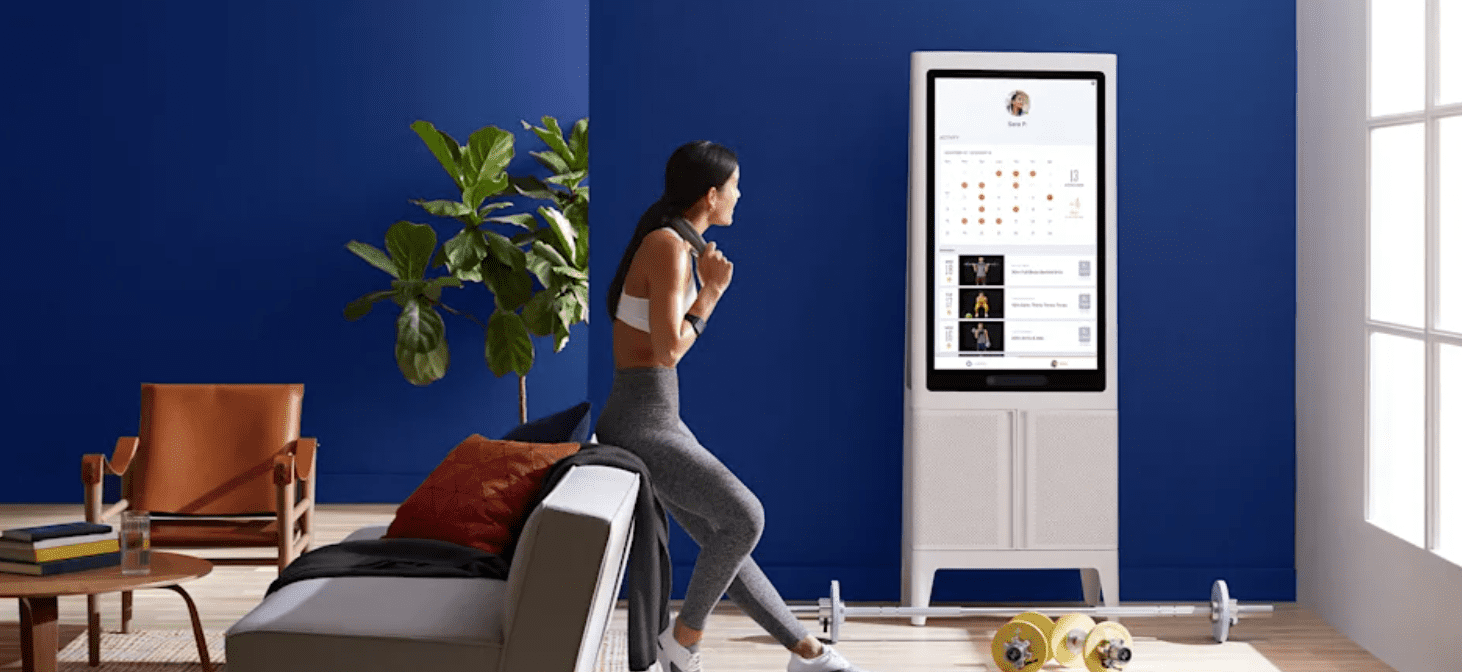Even as gyms reopen across the U.S., the at-home fitness craze only seems to picking up the pace.
Tempo, which launched its first home “studio” in February 2020, on Tuesday announced its $220 million Series C led by SoftBank Vision Fund with participation from new investor Steadfast Venture Capital, and returning investors DCM, General Catalyst, Norwest Venture Partners, and Bling Capital. This follows its $60 million Series B in July 2020. This is the largest Series C round in the connected fitness category.
Tempo includes a six-foot, 100-pound touchscreen, and is powered by artificial intelligence that deploys 3D sensors to capture your movements as you exercise and give you real-time feedback.
Prior to March 2020, there were questions over the sustainability of high-end home exercise equipment. In August 2019, a month before Peloton (PTON) went public, The New York Times’ Erin Griffith wondered if the connected fitness company could last, noting that fitness fads like the Thighmaster had come and gone.
But the pandemic forced many people to exercise from home as gyms shuttered, and those new habits might stick. Eighty-one percent of people under 40 prefer to exercise at home, according to 3500 Americans surveyed in the latest Consumer Trends 2021 report. And 66% of all consumers prefer it to working out at gyms or fitness studios.
Tempo’s base model starts at $2,495 and models with additional weight plates go for $3,995. A $39 monthly digital membership fee is required for every household. Tempo will allocate the fresh round of funding toward enhancing its technology to further expand its real-time feedback on an individual’s form.
A crowded field of players for sweat market share
Moawia Eldeeb, the co-founder and CEO of Tempo, was born in Alexandria, Egypt and grew up in New York City, where he experienced homelessness and went on to study computer science at Columbia University while working as a part-time personal trainer. His co-founder Josh Augustin, who is also the chief technology officer at Tempo, was a classmate and client of Eldeeb’s.
Tempo saw its revenue increase by 10 times and touts a 0% subscription cancelation rate so far, but it does require a 12-month commitment to the membership after activating the device. Sales break down evenly based on population across the whole country, and consumers are evenly 50% male and female, according to Eldeeb.
Outside of Peloton (PTON), Tempo joins a crowded slate of players fighting for sweat market share, including Mirror (LULU), Tonal, Hydrow, and Climbr.
Peloton added 333,000 net connected fitness subscriptions in the second-quarter, bringing its connected fitness membership base to 1.67 million, up 134% year-on-year.
Lululemon, which acquired Mirror in June 2020, started talks pre-pandemic. In the company’s latest earnings call, CEO Calvin McDonald said, “I don’t expect the pandemic tailwinds to disappear once mass vaccinations have occurred. Guests were seeking more convenient at-home options before COVID-19, and they will continue to seek these options post the pandemic. And simply put, Mirror is the most versatile at-home fitness platform available on the market today.”

